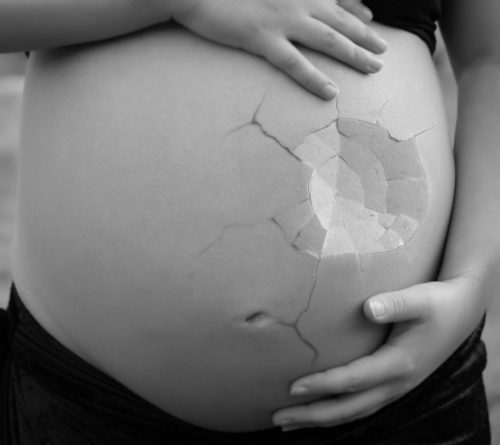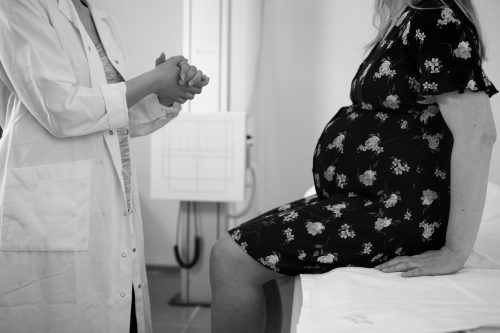People describe pregnancy as a beautiful moment where a woman becomes a mother. It’s always painted as a beautiful picture because it is. But people tend to forget all the hardship it brings with it. These hardships test a mother’s physical and mental health.

In reality, pregnancy brings about a lot of different emotions. Not all are positive. There can even be cases where pregnancy leads to severe mental health issues for the mother.
The Connection Between Pregnancy And Mental Health
Being pregnant is an exciting time for the expecting mother, but it’s also challenging. You will have to deal with hormonal changes, fatigue, discomfort, and even pain, in some instances.
Along with these physical difficulties, expecting mothers also have to deal with significant emotional changes. You have to be ready for the stress that comes before, during, and after pregnancy. You also have to be mentally prepared to welcome a massive change in your lifestyle – your baby. These physical and emotional obstacles are why being pregnant can significantly affect an expecting mother’s mental health. It increases the likelihood of the mother experiencing a mental health complication.
Note that both women and men can develop mental health issues during the process of pregnancy. After all, the expecting mother isn’t the only one worrying about her soon-to-be child. Fathers and grandfathers can be equally stressed. But for this article, we shall focus on the mother’s mental health.
Mental Health Problems That May Arise During Pregnancy
Numerous mental health complications can come up due to pregnancy. These can arise during the antenatal period (before the birth) or the postnatal period (after the delivery).

The following are mental health conditions that can arise during the process of pregnancy:
- Depression
If an expecting mother is not happy about being pregnant or is dealing with a lot of undue stress, she may develop depression. “I see a lot of patients with peri-natal [during pregnancy] depression and postpartum depression. They account for nearly 30 percent of my caseload,” says Kimberly Buckingham, PsyD. It can be present before pregnancy and become more severe during the process. Signs of depression are feelings of hopelessness, anger or irritability, and loss of interest in one’s daily activities.
- Anxiety
Anxiety can develop in an expecting mother who is always worried or fearful of things in the future. It includes the anxious feeling that comes with the idea of having to care for a child. “Being depressed often makes us anxious, and anxiety often makes us depressed,” says Nancy B. Irwin, PsyD. Typical signs of anxiety are feelings of restlessness, feeling weak or tired, and having trouble concentrating.
- Post-Traumatic Stress Disorder (PTSD)
PTSD can develop in women who’ve had a distressing experience while giving birth. It includes feeling severe pain during the birthing. Other, like past miscarriages, can also be a cause for PTSD in expecting mothers. A telltale symptom of PTSD induced by pregnancy is the fear of giving birth if ever one becomes pregnant again.
Expecting mothers who already have mental health complications can have them become more severe during pregnancy. These include the ones stated above. Other mental health disorders that can be worsened or triggered by pregnancy are the following: bipolar disorder, obsessive-compulsive disorder, and eating disorders (e.g., bulimia or anorexia nervosa).
Tips For Maintaining Your Mental State While Pregnant
Make taking care of your mental health and well-being a priority, especially while you’re pregnant. Here are some suggestions for doing that:
- Don’t push yourself too much. Only do what you can manage. Ask for help when dealing with things you can’t do yourself.
- Do not make significant life changes during your pregnancy, like changing jobs or moving to a new house. It gives you more things to worry about.
- Keep yourself physically healthy. Eat your meals regularly and get enough rest.
- Avoid drinking alcohol and smoking.
- Talk to your partner or to anyone else you trust about what you’re feeling.
If your mental health is plummeting, it might be time to consult a professional. Talk to a doctor, counselor, or therapist if you start showing symptoms for any mental health disorders. “It’s enormously important that the field start thinking about assessing and treating depression during pregnancy, not just postpartum,” says Ellen Poleshuck, PhD.

Yes, pregnancy is a beautiful thing, but it’s also challenging to deal with, especially for the expecting mother. It brings about a lot of obstacles that can wear down physical and mental fortitude. As such, the expectant mother’s mental health should be prioritized just as much as their physical health.
To all potential mothers out there: Take care of yourself as much as you can. Do this for your sake, your baby’s, and the rest of your family’s. You can get through this.